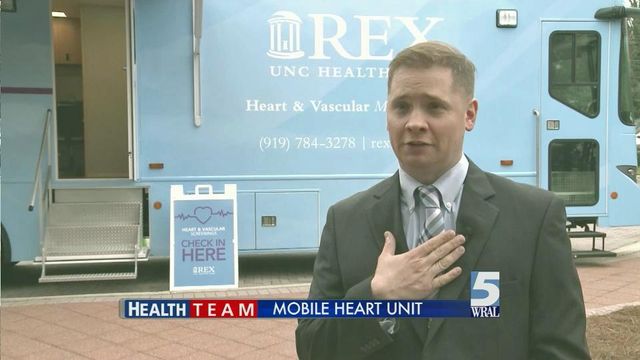'Big blue bus' will raise awareness about heart disease across Triangle
Heart disease is the leading cause of death for men and women. Forty percent of African Americans have significant risk factors for heart disease and stroke, but a new bus has hit the road to try to raise awareness and help people catch those problems early.
Posted — UpdatedHeart disease is the leading cause of death for men and women.
Forty percent of African-Americans have significant risk factors for heart disease and stroke, but a new bus has hit the road to try to raise awareness and help people catch those problems early.
The light blue mobile unit, complete with a big heart on the side, will be hard to miss, and that's the point.
"We've done a great job, especially in women's health, raising awareness for breast cancer. In the same light, we're hoping to raise awareness for cardiovascular disease," Ben Walker, a cardiologist with North Carolina Heart & Vascular, said.
Rather than waiting for people to come to the hospital with potentially life-threatening symptoms, Rex-UNC Health Care is using the heart and vascular mobile screening unit to help people catch problems early.
Walker said people can get screenings for heart disease, abdominal aortic disease and carotid disease. Walker says the screening tools offer more than what most primary care physicians offer in a standard exam.
In addition to screening blood pressure and weight, ultrasound equipment can find potential problems in heart valves and detect hidden aneurysms or blocked arteries.
"People that are high risk with any of our tests will then be referred and given contact information to providers that specialize in that area," Walker said.
The mobile unit will travel within a 50-to 100-mile radius of the Raleigh area, often to large corporate offices or community events.
The unit plans to offer some free screenings for community visits, but typically the cost will be $100 to $150 per patient, which is less expensive than most office visits for the same tests.
Since the screenings are preventative and selective, some insurers do not cover them.
• Credits
Copyright 2024 by Capitol Broadcasting Company. All rights reserved. This material may not be published, broadcast, rewritten or redistributed.





